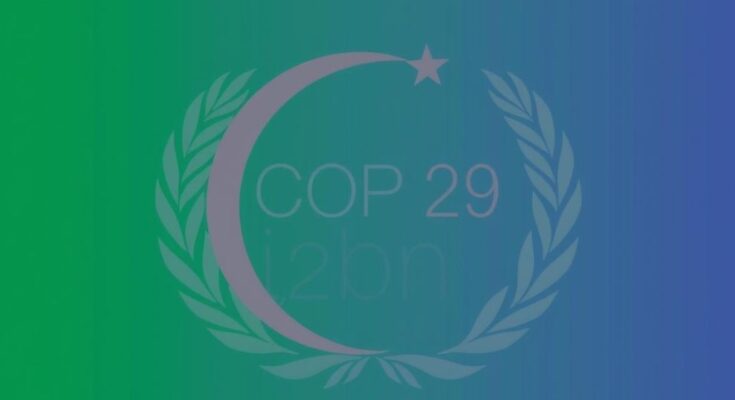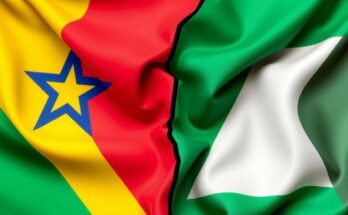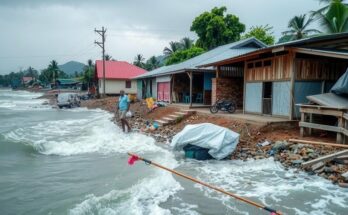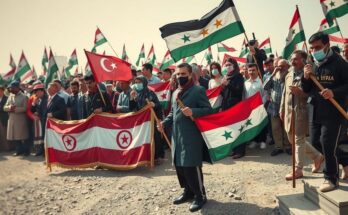Azerbaijan is attempting to suppress criticism of its human rights record ahead of COP29 by embedding ambiguous legal protections in the hosting agreement, potentially enabling punitive actions against dissenters. The conference retains global significance as climate discussions unfold against a backdrop of heightened state repression.
Azerbaijan appears to be taking decisive measures to suppress discussions regarding its human rights record in advance of the forthcoming COP29 climate conference, set to be hosted in Baku from November 11-22, 2023. According to a copy of the hosting agreement acquired by Human Rights Watch (HRW), the document includes provisions that could enable Azerbaijani authorities to stifle criticism of the nation’s domestic policies. The agreement, finalized in August, has been described as having ambiguous terms that could create legal uncertainties for conference participants concerning their freedom of expression. Although it grants certain immunities regarding statements made in an official capacity, it simultaneously imposes a duty on attendees to adhere to Azerbaijani laws, leaving room for the government to interpret any critique as “interference” in its internal affairs. Notably, the agreement lacks specific definitions surrounding this term, which heightens the prospect of punitive measures against dissenters. In recent times, Azerbaijan has intensified its crackdown on dissent, raising concerns among human rights advocates about the implications for a forum ostensibly designed for open dialogue on environmental issues. Human Rights Watch criticized the UNFCCC for engaging in negotiations with Azerbaijan and urged the organization to ensure that COP29 is conducted in a manner that respects human rights. Frank Schwabe, a member of the German parliamentary delegation, condemned the suppression of dissent, emphasizing that COP29 should serve as a legitimate platform for addressing Azerbaijan’s human rights situation. He stated, “No one should be afraid of criticizing the government. They have to talk about the situation in Azerbaijan.” Further complicating the conference, reports indicate that Russian President Vladimir Putin may not attend, which could alleviate a potential diplomatic strain for Azerbaijan, particularly considering the calls for a boycott from Ukraine’s ambassador to the EU if Putin were to participate. Overall, the intersection of climate discourse and the right to free expression poses significant challenges as COP29 approaches, highlighting the need for transparency and adherence to human rights standards in international agreements.
The upcoming COP29 climate conference, scheduled to take place in Baku, Azerbaijan, is under scrutiny not merely for its environmental agenda but also for the human rights implications associated with the host nation. Recent developments reveal that Azerbaijan, while benefiting from hosting the conference, may be leveraging this platform to suppress dissent and criticism of its governmental policies. The hosting agreement with the UNFCCC appears to empower the Azerbaijani authorities in ways that could endanger the safety and speech of conference participants, thereby raising concerns among international observers and human rights organizations. As global discussions surrounding climate change intensify, the protection of civil liberties remains a contentious issue, particularly in states with questionable human rights records.
In summary, Azerbaijan is actively seeking to inhibit critical discourse on its human rights practices as COP29 approaches, utilizing the hosting agreement to impose stringent limitations on freedom of expression. The potential for punitive responses to criticisms raises alarm among international human rights advocates. As the global community convenes to address pressing climate issues, the safeguarding of human rights must remain paramount, ensuring that discussions are both transparent and free from government interference. Prominent voices, like that of Frank Schwabe, underscore the necessity for confronting the realities of human rights abuses within the context of this vital international dialogue.
Original Source: eurasianet.org




